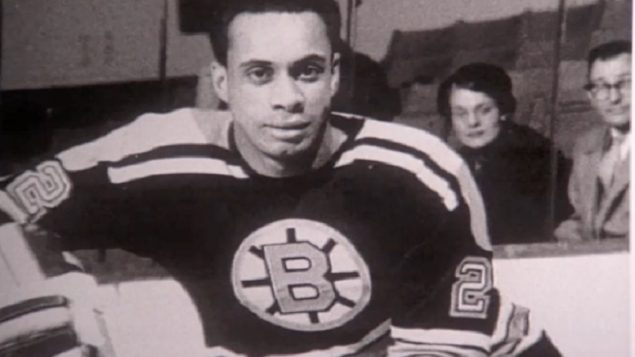The songs of African-American slaves who crossed into Canada are more than 150 years old, but Vancouver-based musician Khari McClelland still takes pride in them today.
McClelland’s great-great-great-grandmother Kizzy is one of those slaves, forgotten by the history books but remembered fondly by family. Even her last name has been lost.
“She is totally the reason for my being,” says McClelland, a member of Vancouver-based gospel group The Sojourners.

This is one of the few photographs of Cynthia Dorsey, Kizzy’s daughter. No images of Kizzy survive. (McClelland family)
“Her willingness to struggle and survive in the face of so much is why I’m sitting right here.”
Kizzy died before McClelland was born. All he knows is she was born a slave, somehow escaped through theUnderground Railroad to Canada, and had two children with a white man she didn’t marry.
Eventually, after slavery was officially abolished in the United States in 1865, Kizzy and her two children crossed back to settle in the Detroit area.
McClelland has read many books about the experiences of slaves who ran away. But he’s always felt one thing is missing: the music.
“What were the songs that people were singing to help bolster their spirits in really, really challenging times?” McClelland asks. “So that’s what started me on my journey.”
For six weeks in the summer of 2015, McClelland travelled to historic sites associated with early African-Canadians in Nova Scotia and Ontario interviewing other descendants and digging into archives. He also went home to Detroit to see what mysteries he could unravel there.
Khari McClelland and his mother Cathy have used Kizzy’s story as a source of strength in their lives. (Andrew Jeffrey/CBC)
McClelland’s mother, Cathy McClelland, remembers one story about Kizzy that was passed down.
At some point, possibly because of the cold Canadian winter, Kizzy’s legs needed to be amputated.
Years later, in Detroit, this brave woman who had walked to freedom couldn’t even walk outside the front door.
“Kizzy would want to go out,” Cathy says. “So they’d put her on the front porch and the neighbours’ kids would come by and they would poke fun of her.”
Cathy and Khari say they would have defended Kizzy if they were there.
“Leave Kizzy alone!” Cathy warns.
With so few facts to guide him, Khari McClelland has decided music can be a way to understand Kizzy’s world.
“Music is like a transportation device,” McClelland says. “When I’m singing a song that somebody sang from the Underground Railroad 150 years ago, that same emotive place can resonate in me today.”
Historian Roy Finkenbine from the University of Detroit Mercy says the songs had two purposes: they buoyed the freedom seekers’ spirits and they offered some advice for how to travel.
Click here to read the rest of this story on CBC.ca





Khari McClelland’s work in preserving and reinterpreting slave songs is a powerful way to honor history and culture. Music has always been a vital tool for resilience, storytelling, and resistance, and his efforts help keep these important narratives alive for new generations. fall guys online